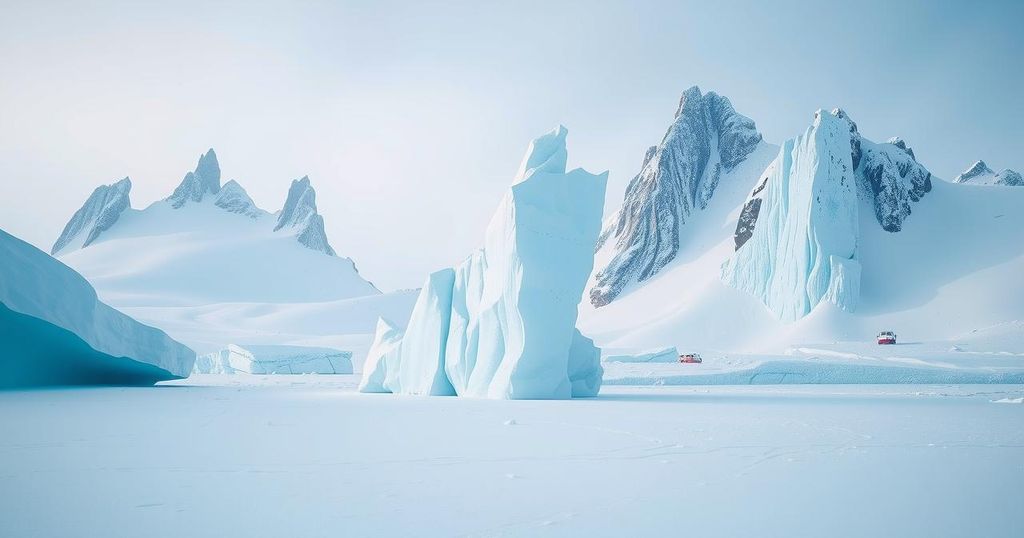South Africa Maintains Antarctic Research Team Amid Allegations of Misconduct
South Africa will keep its Antarctic research team despite allegations of assault and harassment against a member. Environment Minister Dion George stated no immediate removal is planned as all team members remain calm, although the isolated location poses challenges for oversight. Historical misconduct within Antarctic teams highlights the need for better reporting and support for researchers amid extreme conditions.
South Africa has chosen not to remove a team of researchers from its Antarctic base amid allegations of physical assault and sexual harassment. This decision follows an investigation by the environment department, which stated, “There were no incidents that required any of the nine overwintering team members to be brought back to Cape Town,” according to Minister Dion George. He emphasized that the situation on the base, known as Sanae IV, remains “calm and under control.”
The allegations surfaced last month and have been under investigation. However, the remote location of the base, approximately 2,700 miles from the mainland and characterized by harsh climate conditions, complicates the inquiry. Dr. George mentioned that the first reports of these allegations came via correspondence expressing fear and describing misconduct.
Antarctica’s extreme isolation creates challenges for scrutinizing researcher behavior, leading to concerns about misconduct. Historical instances, such as a reported attack in a Russian station and harassment claims within the South African teams, illustrate this pattern of behavior in this unique environment.
Despite the serious allegations, the accused scientist reportedly expressed remorse and issued an apology to the victim, alongside voluntarily undergoing a psychological evaluation. No specific details about the situation were confirmed by Dr. George.
Experts, like Professor Mathieu Morlighem from Dartmouth, have noted that harassment in Antarctica is a significant issue that has gained increased attention. Due to the isolating conditions, victims may find it difficult to report misbehavior.
The recruitment process for Antarctic researchers often includes rigorous vetting to mitigate potential issues. South Africa evaluates candidates based on technical skills and personal histories. Dr. George affirmed that all checks were satisfactory prior to the team’s departure.
Yet, concerns about removing a team member persist, as each scientist is vital for the team’s functionality during winter months. Professor Dawn Sumner pointed out that if someone were to depart, it would jeopardize the operational integrity of the base. The challenges are expected to intensify as the Antarctic winter progresses.
Amid these adversities, it is crucial for the scientific community to address the misconduct and improve conditions for researchers in Antarctica, emphasizing the need for better reporting mechanisms and support systems for individuals in distress.
In summary, South Africa has opted to retain its Antarctic research team despite serious allegations of assault and harassment. The complexities of the Antarctic environment hinder investigations and pose significant challenges for team dynamics and misconduct oversight. This situation underlines broader systemic issues within remote scientific communities, necessitating improved support and reporting mechanisms for researchers.
Original Source: www.nytimes.com




Post Comment